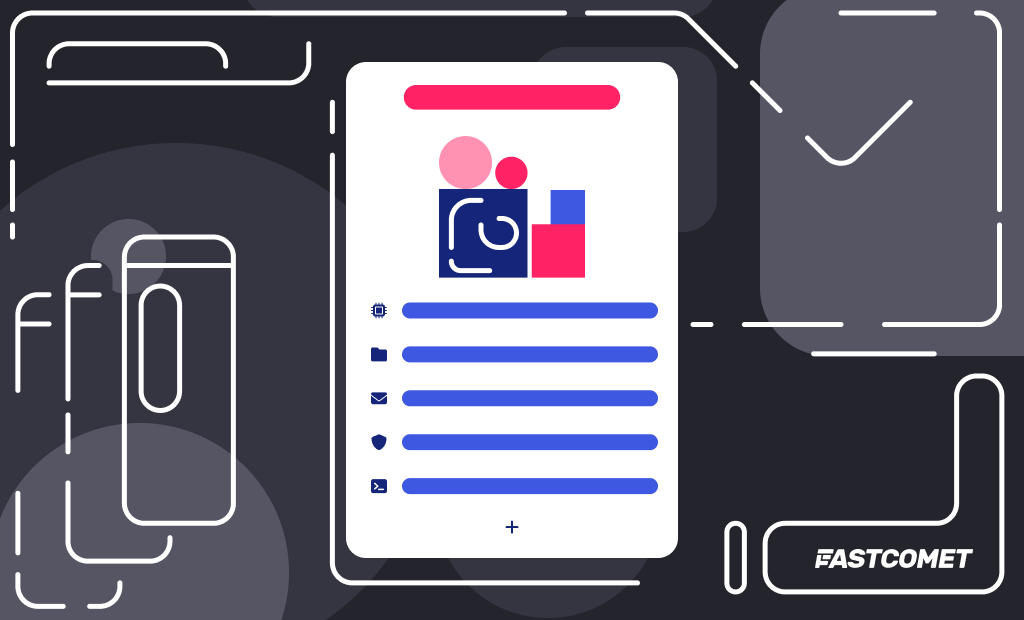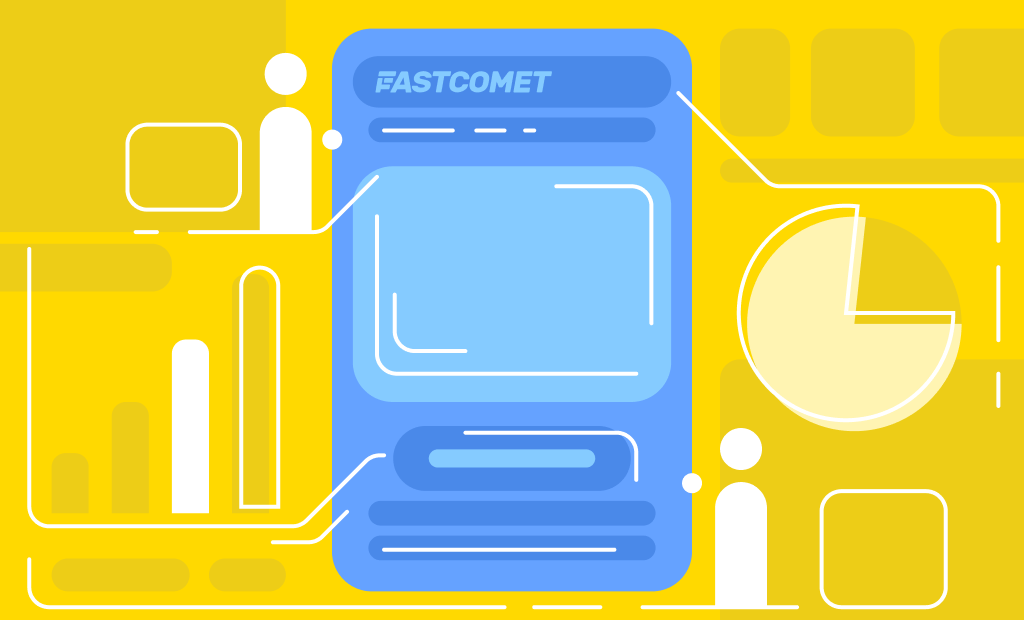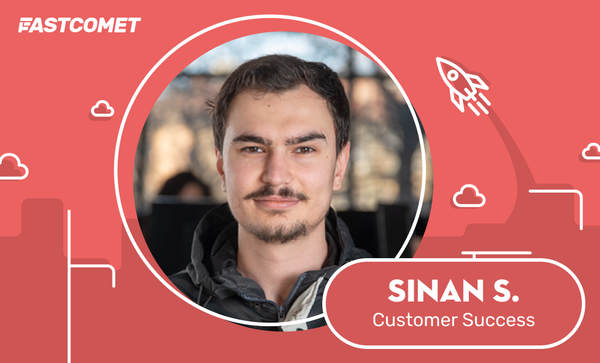
When to Upgrade Your Hosting Plan?
When you’re first launching a website project, the sheer span of hosting options can seem overwhelming. In the beginning, if you are just starting out your adventure of having your own website, it’s often safe to figure you can rely on one of the more basic plans and then upgrade when the time comes. It’s fair to say most first-time website owners opt for a shared hosting plan. It has all the features to get your website off the ground; it is low-cost and beginner-friendly at the same time. FastComet has plans available that range from maintaining a simple blog all the way to more complex and larger corporate needs.
As your business grows and your website has a bigger job to do, at some point you need to switch and scale to a web hosting plan that matches your growing needs. There are a bunch of other hosting plans out there to help you size up. Many provide additional features to keep your growing site performing smoothly. It’s much like moving homes as your family grows.
So let’s get started. First, I’ll explain why you might want to upgrade and when you should. Then we’ll walk through some of the most common types of hosting plans before showing you how to start the upgrade process. Let’s start with the heavy lifting.
Why You Might Need to Upgrade Your Hosting Plan
Building out your own a fully functioning and nicely designed website isn’t rocket science. It’s quite easy actually, even for a complete novice who hasn’t had much experience with computers. Unlike the old days, you don’t need to code a website to make something amazing manually. In fact, you can choose from an abundance of platforms to help you construct a website without entering a single line of code.
If you’re setting up a blog, personal website or a business website, you will need both a domain name and hosting package. With the hosting package, you also get unlimited email addresses that are assigned to your domain name! Most first-time website owners with limited tech background don’t know a lot about hosting, though. They are usually tempted to opt for the affordable entry-level plan they can find and go back to focusing on designing their site and creating content. Since it is basically the cheapest plan, it is economical. There is nothing wrong with this approach actually.
Deciding on a hosting plan lays the groundwork for building your site. Think of it like buying a plot of digital real estate to build your online structure. You’ll almost certainly be getting a shared hosting package, which means your website will be hosted on the same server many others. Basic entry-level hosting, whose name would generally include keywords like “start”, “tiny”, “intro”, can serve you well during your site’s early stages. If you’ve ever lived in an apartment complex, you’ll know the advantages of shared hosting. You reside the same building, but still, get your own apartment, and get to share all the other available amenities that are available. In other words, you rent out part of the server and share the resources: CPU (processors), memory and disk space, bandwidth, etc. with the other users. This works adequately for the majority of small websites, most of the time, as the speed, storage, bandwidth and reliability you need, generally function without a problem.
As your needs grow and your website gets more popular or becomes of greater importance to you and your business, it’s time to start thinking of upgrading from entry-level shared hosting to the next level corresponding plan.
Earlier, we talked about how poor optimization can affect your site’s performance. In order to determine if you actually need a larger and more powerful plan, you first need to evaluate the pain points your web hosting account is experiencing. Perhaps your site is running slower than normal, loading slowly, or not loading at all? Have you been experiencing an increase in traffic? Or perhaps your website is dynamic and heavy, or running numerous scripts? There are many factors that can contribute to any of these symptoms, so we recommend trying a few things to improve your site’s performance. If you’ve already worked on optimizing your website’s performance, but you’re still not seeing an improvement, then it’s definitely time to think about an upgrade.
When You Should Consider Upgrading Your Hosting Plan
Depending on your business needs or preferences, there comes the point when you may need to upgrade your hosting. You may want to consider the next level of shared hosting plan. It could be that you need a VPS or dedicated server instead. However, knowing if it’s really the right time to upgrade from shared hosting isn’t always a straightforward process. To help narrow down your decision, here are some of the signs to look out for before making the switch.
Your Site’s Performance is Suffering
As your business grows, your hosting needs may change as well. Are your monthly traffic numbers steadily increasing? Well, good for you!
At this stage, you need to switch to a more powerful plan that can handle a larger amount of traffic. Keep in mind that if your website has a large amount of incoming traffic, it becomes difficult for your shared server to keep up with the demand. As a result, performance starts deteriorating and probably your website takes a long time to load.
In the world of eCommerce, any slowdown can have extremely negative effects on sales conversions, so it pays to offer your customers a consistently fast experience. If you constantly feel as though your website is sluggish and you feel like you are losing sales because of it, then it’s usually time to upgrade your hosting.
You Need More and Better Features
While it’s true that more expensive hosting plans are usually able to handle a lot more traffic, that’s not the only upside to upgrading. In most cases, you’ll also gain access to new and exciting features. Generally, basic shared hosting plans only enable you to run one website using your package. More expensive plans often raise that limit or remove it altogether. If you have multiple single website shared plans then it could be beneficial to bring all of your sites under a single hosting plan – name it more powerful shared hosting plan or a cloud VPS.
Maybe you want to host some script that has some special requirements – there are many possible reasons you may need to upgrade. If you’re interested in pursuing changes to your website that require the ability to do more customization or use unsupported software, then you’ll need to switch to a hosting plan that provides that.
By paying a bit more money, you can get more resources, a larger amount of traffic and free value-added extras.
You Want More Security Features
If you run a business online, website security has to be one of your top priorities.
Some basic hosting plans don’t include many features or options in terms of security since not all websites require them. But if you’ll be collecting any kind of sensitive information from your visitors, especially financial information, then it’s your responsibility to do everything in your power to keep your website secure.
If you started out with a hosting plan that didn’t provide security features, then you should upgrade as soon as possible to a business plan that satisfies your security needs.
You Have an Online Store
The moment you plan on running an online store is the moment you should upgrade your hosting plan. Even if it’s a small eCommerce site or a very large one, a VPS plan will be a better investment for this situation. Why? Because with VPS, you have a secure and dedicated virtual server where you are more likely to pass a PCI compliance test. The Payment Card Industry Data Security Standard was established by major credit card brands to protect against cardholder data theft.
If you are accepting credit cards on your website, you want to do everything you can to ensure the safety of your consumers’ financial information. Since VPS is more secure than shared hosting, it’s the better option for eCommerce websites.
You are on FastComet’s Legacy Plans and Want to Switch to Our New Plans
Our significant investment over the last year into developing a platform that optimizes speed and applies performance-enhancing technologies, as well as better network and server infrastructure, has gradually brought into question the feasibility and inclusion of our former Single, Multi and E-Commerce packages as a continued focus.
We underwent several promotional campaigns that offered our customers favorable ways to upgrade their plans to any of our newly introduced plans. More than 60% of the legacy plan customers made the decision to move forward and took advantage of these promotions. During this transition, they got more feature optimized parameters, SSD in RAID 10 for all plans, extremely high-end server hardware, redundant infrastructure, increased RAM, CPU, and speed while enhancing security and much more. Want to take advantage, too? Contact us for an exclusive offer.
You Have Done the Math
Ultimately, the decision to upgrade your hosting comes down to money. How much money are you going to lose if your site becomes sluggish or goes down? How much money are you going to pay more to upgrade to the next level plan and preserve yourself a bit more resources in advance? Is it worth it?
In the end, you need to gauge whether paying the extra money will end up being a net positive for your business. But honestly, given how cheap VPS hosting is these days, you would have to be making extremely little with your site not to justify an upgrade.
If even one of the above applies to you, it’s worth looking into other hosting options. A simple upgrade to a larger, more comprehensive plan might be all you need to eliminate these problems and secure the best possible experience for your users. It’s true that a dedicated hosting package can also solve these problems. However, it’s important to note that dedicated servers are a pricier option. If you need to improve your bandwidth, increase your security, and get more RAM, then the most affordable option is to opt for VPS hosting.
What do I do when I need to upgrade
The first thing is to determine what you need and try to some extent to anticipate your future needs. Once you believe you have determined what you need, begin looking at plans that may meet your requirements, carefully examine the specifications of these plans and don’t be reluctant to ask questions.
Here at FastComet, we can offer recommendations if you like, and we will be happy to answer any questions you may have. Then, once you have decided on a new plan, your next actions depend on the hosting plan you are moving from and the one you are moving to.
What Your Hosting Upgrade Options Are (And How They Work)
Important note: even though I’m going to run you through the upgrade options available from FastComet — because, honestly, I am convinced they’re pretty amazing — this info will still be pragmatic to you no matter which provider you decide to go with.
SpeedUp – It is the perfect solution for those site owners that don’t need the expense of a dedicated server but more processing power than a normal shared hosting package for a fraction of the price. The new platform gives you the best of two worlds – the easy to use cPanel and the top performance custom environment setup with 5 layers of caching including Varnish, APC, OPCode, LiteSpeed LSAPI PHP, and Memcached. Best for fast-growing, high-traffic websites where performance and speed are key.
The SpeedUp Plan’s successor is called FastCloud Extra. You can read more on the change in our FastCloud plans Introduction post.
Once you’ve decided that it might be time to opt for a non-shared hosting plan, your next question will likely be: What type of plan should I get? So let’s discuss the three options we offer at FastComet that are the natural next steps from a shared hosting plan.
Cloud VPS – Most people choose shared web hosting for their first website. While this is the ideal choice for smaller websites, portfolios, and blogs, it is not enough for larger websites that have growth potential. So if you are serious about your online business but are using shared web hosting, you should probably start thinking about upgrading your hosting plan to the next level – the VPS web hosting plan. Certainly, shared hosting offers you many great features at a low cost. But as your business grows, your hosting needs may change as well. Back to our home analogy: think of upgrading to a VPS plan like moving your growing family into the semi-detached townhouse.
Even better? FastComet’s VPS plans are fully managed, meaning we’ll take care of all the nitty-gritty technical stuff for you.
Dedicated Server – A dedicated server is the most powerful option and is suitable for the most demanding websites. This is where you rent an entire physical server from your hosting provider. This server is only used to run your website and isn’t shared with any other users. This gives you access to a lot more resources than you’ll see with shared hosting. For example, dedicated hosting could be right for you if:
- you are getting large amounts of traffic each day.
- you need to install your own operating system.
- you are handling thousands of financial transactions.
- your website requires custom software.
How to Start the Upgrade Process
Like all aspects of your business, it is important to plan ahead and choose the right web hosting package so as to ensure that it delivers the desired outcome and leads your business to success. The process is easy and straightforward, and it is performed by our professional Technical support team. Right after the upgrade order is posted, the team will initiate the upgrade itself.
Can I Upgrade at Any Time? How Much Does It Cost?
You can upgrade your account at any time. It is free to upgrade, and the only charge you would be responsible for is the price difference between your current plan and the plan to which you’d like to upgrade.
Our system is prorated, which means we calculate the unused time on the old plan and the remaining time on the new plan within the 30-day or annual billing period.
Switching Plans
Upgrading to a better hosting plan is a milestone for most websites. It’s a signal that you’re ready for bigger and better things. The future is now!

The latest tips and news from the industry straight to your inbox!
Join 30,000+ subscribers for exclusive access to our monthly newsletter with insider cloud, hosting and WordPress tips!



No Comments